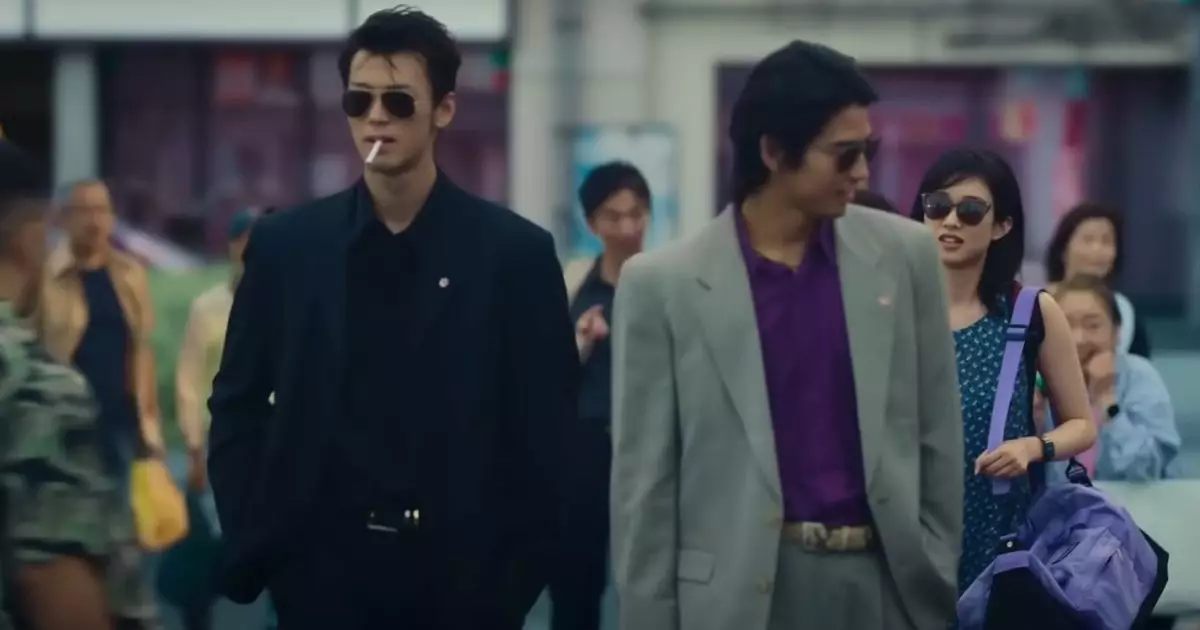With the buzz surrounding the upcoming “Like A Dragon: Yakuza” series from Amazon, fans of the iconic video game franchise find themselves standing at a fine precipice of anticipation and skepticism. As someone deeply entrenched in the Yakuza universe, my initial reaction to the new trailer is cautiously optimistic, yet surprisingly apprehensive.
The trailer unfolds with a poignant flashback, presenting a young Kiryu in an arena, scenes evoking raw energy as a dragon-tattooed Yakuza delivers a powerful uppercut. This striking visual is promising but raises questions about the show’s thematic direction. Unlike the whimsical nature of its gaming predecessors, the series appears to adopt a more serious tone, possibly distancing itself from the quirky, over-the-top elements that Yakuza fans have come to love. There’s a peculiar absence of the goofy narrative threads, such as encounters with ludicrously eccentric characters, that made the games both amusing and ludicrous at times.
Indeed, the notorious scenarios—like running into a floral-themed informant or engaging in ridiculously niche subplots involving miniature racecars—seem absent from the trailer. Such omissions can be construed as either an opportunity for a refined storyline or a missed chance to showcase the series’ unique charm. The Yakuza series thrives on its juxtaposition of humor and drama. The decision to pivot towards seriousness might alienate potential viewers who are draw in by its lighter, eccentric charm.
The official synopsis unpacks a dual timeline narrative, taking place in 1995 and 2005, following an idealistic heist plan by Kiryu and friends that spirals into chaos as they delve into the perilous Yakuza underworld. Meanwhile, a matured Kiryu, after serving time, discovers that his friends are in jeopardy. This storyline, while intricate, raises concerns regarding character development and the emotional resonance integral to Yakuza’s storytelling fabric.
What remains to be seen is the portrayal of Kiryu’s relationships with his companions—Nishiki, Yumi, and Miho—and how their dynamics evolve amid the Yakuza’s perpetual turmoil. The potential for rich narratives is immense if the series takes the time to explore personal growth and moral dilemmas. The game’s ability to weave human experience into its extravagant action scenes facilitated a deep connection between players and characters. Can the show succeed where the games have delighted, or will it fall short in capturing the essence of these relationships?
While I remain hopeful for the Yakuza series, I can’t help but speculate on its trajectory. The narrative promises thrilling arcs, but it will also need to navigate the delicate balance between adhering to the franchise’s legacy and creating a self-contained story that resonates with a broader audience unfamiliar with the games. Will there be moments mirroring the games’ unique absurdities to connect with diehard fans? Or will it stray too far into conventional territory?
Moreover, I hold a distant familiarity with how this saga concludes. The inevitable showdowns that Kiryu faces, confronting a slew of adversaries through increasingly desperate measures, will be the soul of the narrative. Will we witness him scaling the Millenium Tower, battling through foes of escalating ferocity until a crescendo that could align with high drama? The theoretical ending—a mixture of tragedy, heroism, and the cyclical nature of his journey—could either galvanize audiences or serve as a superficial narrative trap.
Ultimately, as the series inches closer to launching, one cannot remove the flicker of hope from the equation. It would be a misstep to disregard the potential for emotional depth and engaging storytelling set against the backdrop of Kamurocho’s vivid environment. The show’s success will hinge on its ability to translate the multifaceted nature of Yakuza storytelling into a viewer-friendly format while remaining true to the essence of its lead character.
With a careful eye on forthcoming trailers and promotional material, the cautious excitement within the gaming community will linger. Could the “Like A Dragon: Yakuza” series become a beacon representing the best of what game adaptations can achieve, or might it serve as another missed opportunity in the ever-evolving landscape of video game translations? Only time will tell if it strikes the right balance between grit and absurdity while staying true to the heart of Yakuza.


Leave a Reply